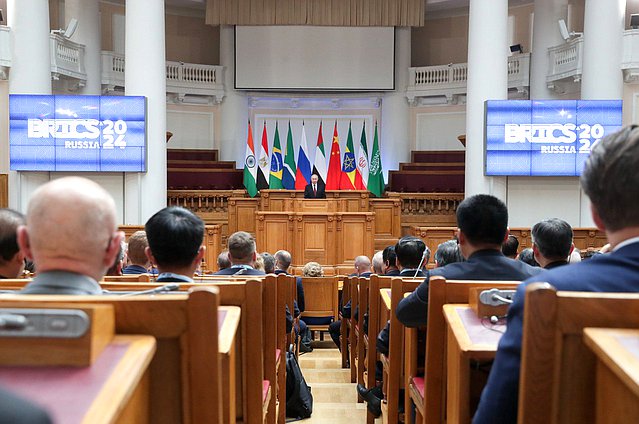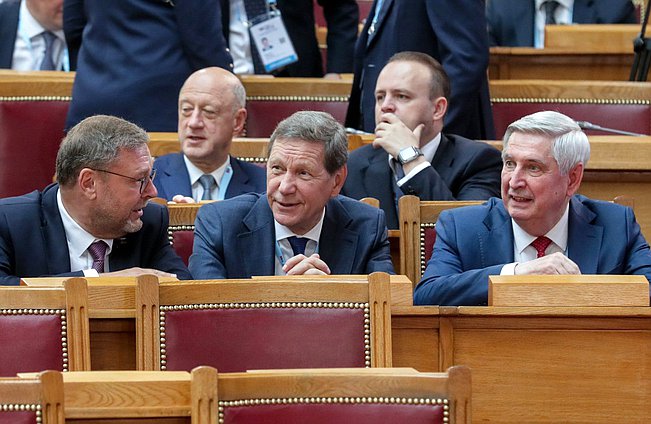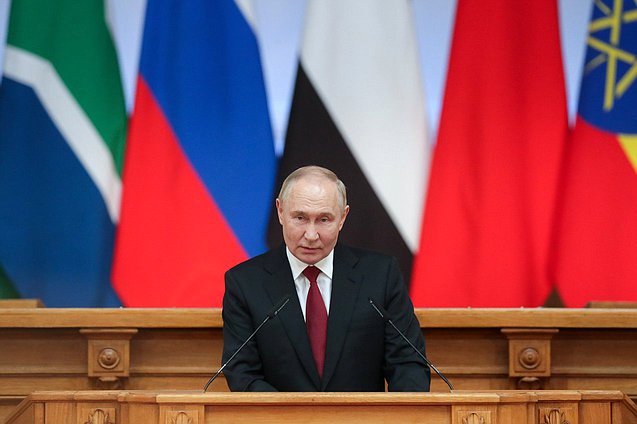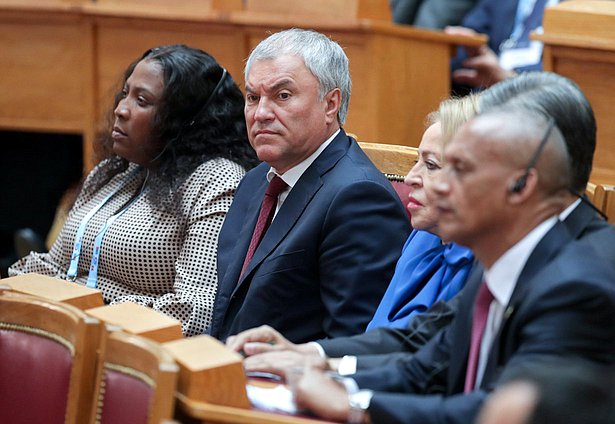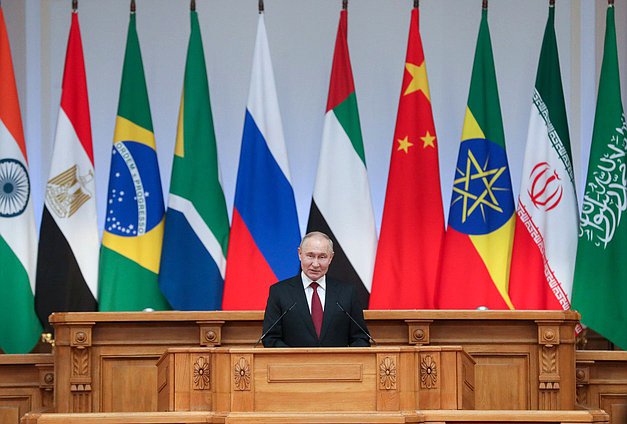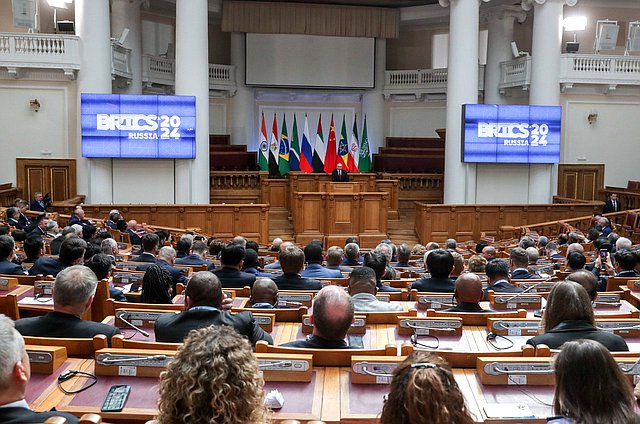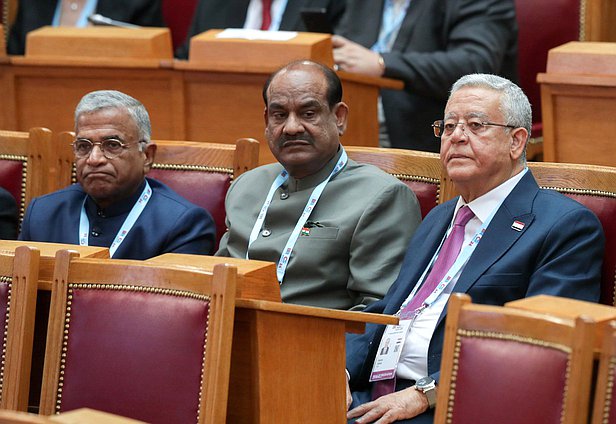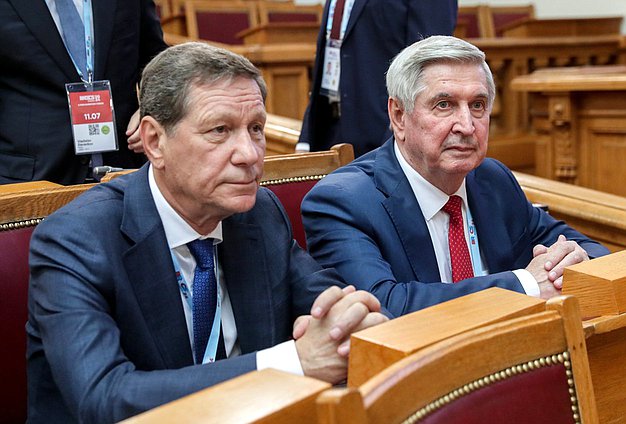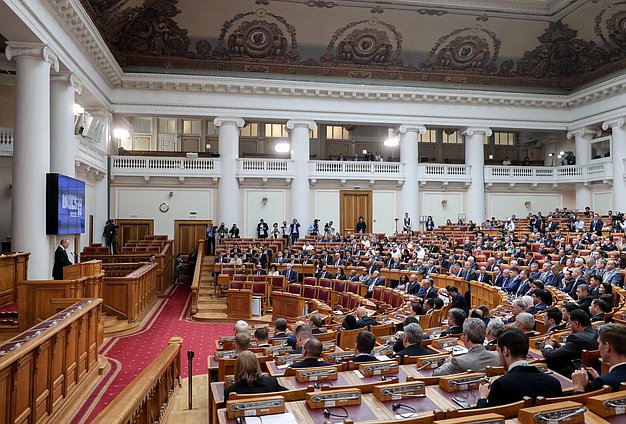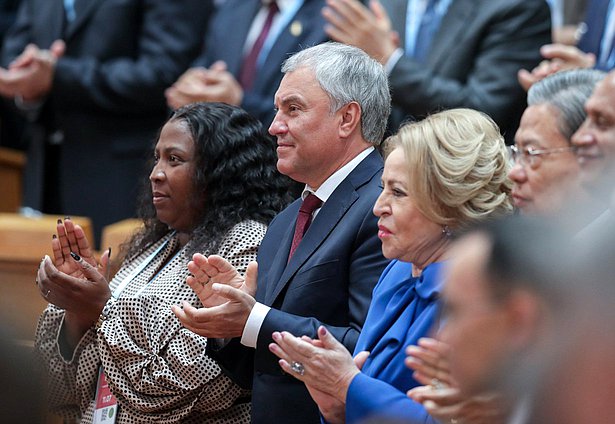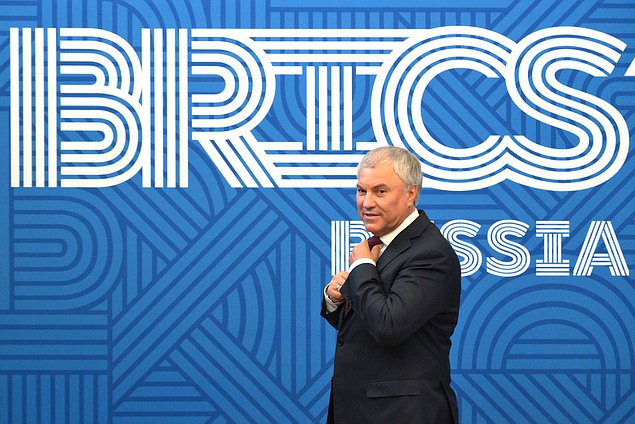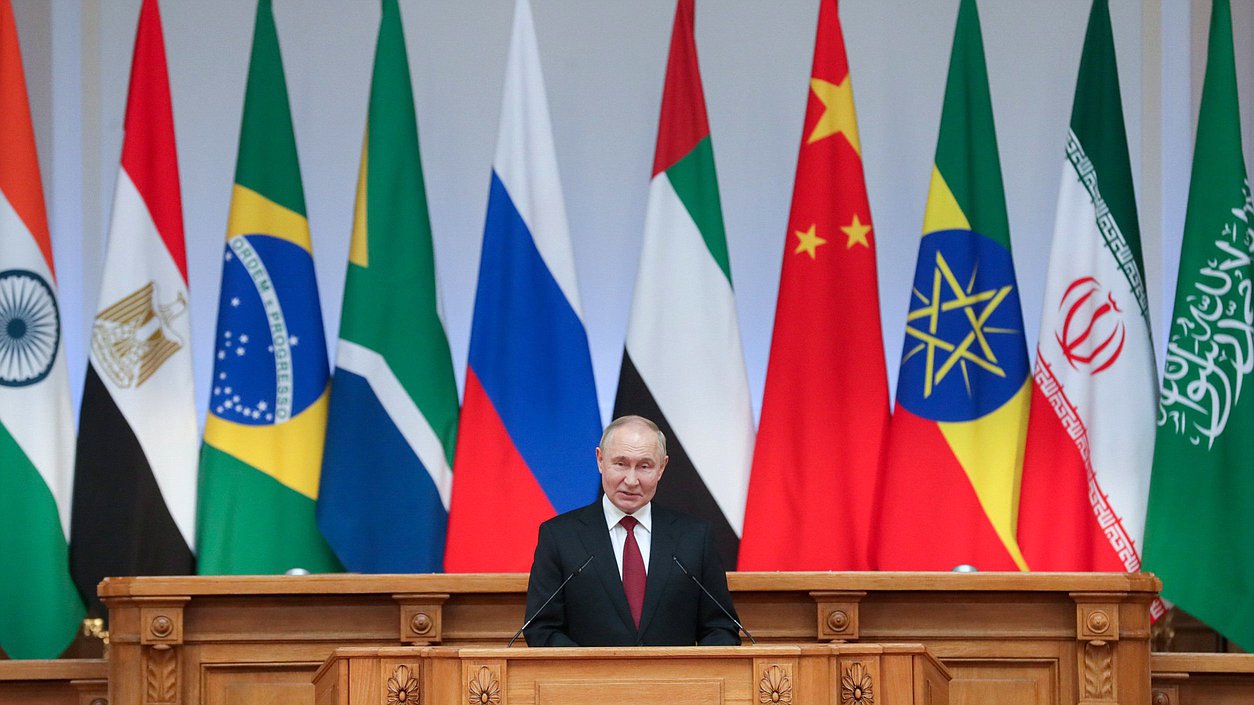
“Ms Matvienko, Mr Volodin, friends.
Dear guests,
I am delighted to welcome the participants and organisers of the 10th BRICS Parliamentary Forum.
Also present here in this room is our distinguished guest, President of the Inter-Parliamentary Union Tulia Ackson. Ms Ackson, we consider your participation in the forum as a sign of support for the constructive partnership among representatives of legislatures in the countries of the Global South and East, and indeed, of all countries interested in constructive interaction and cooperation, and their initiatives on key issues on today’s international agenda.
The theme of this forum, The Role of Parliaments in Strengthening Multilateralism for Just Global Development and Security, is extremely important. It speaks for itself, highlighting the nature of the fundamental global transformations underway today.
Your open discussions, the face-to-face conversations between legislators representing their voters fully align with the principles that underpin BRICS philosophy. These include consideration of each other’s interests, reliance on democracy in international relations, respect for sovereignty of nations and their right to determine their own development trajectories.
These principles are close and understandable to all states parties of the BRICS group, which is growing rapidly and gaining a qualitatively new influence on the global dynamics and developments.
Again, parliamentary dialogue, including within the BRICS framework, is more important today than ever. After all, as speakers for the interests of your peoples, as representatives of their political and national will, you are keenly aware of the genuine demands, sentiments and needs of millions, or even billions of people on our planet.
I am confident that you will make a significant contribution to the socioeconomic progress of the BRICS countries, and to their citizens’ prosperity. And you will certainly do your utmost to reduce international tensions, to create a more just, democratic, multipolar and multilateral world.
We understand very well that formation of a world order that reflects the real balance of forces and the new geopolitical, economic and demographic reality is a complicated and, unfortunately, even painful process – mainly because the efforts of the BRICS members and other developing countries are facing fierce resistance from the ruling elites of the so-called “golden billion” states.
Acting contrary to historical logic and often to the detriment of the long-term interests of their own nations, they seek to cement a certain order based on their own so-called rules that nobody has ever seen, discussed or adopted. These rules are written or corrected every time anew, to suit every specific situation and in the interests of those who consider themselves exceptional and arrogated the right to dictate their will to others. This is classical colonialism at its best, a clear attempt to replace legitimate international law and monopolise the ultimate truth – and this monopoly is destructive.
The pressure on those who have their own stance is growing. Contrary to the principles of international law, they are using force and coercion, unilateral sanctions, selective application of trade rules, and blackmail.
We have seen attempts to restrict direct contacts between lawmakers, which goes against the principle of free interparliamentary cooperation and the sovereign right of official representatives of every state to protect their national interests.
That is why today the significance and relevance of collective work by people’s representatives on the constructive agenda of our association are rising dramatically.
Let me remind you that the main goal of Russia’s BRICS Chairmanship this year is to create the most favourable conditions for consistent development of all its members. I am convinced that, by acting together in unity, we will be able to fulfill our countries’ potential in the economy, investment, technology, and human capital; to strengthen the positive impact of BRICS on global developments and make the world safer and more harmonious.
This year, the number of BRICS members has reached ten. Every state is unique and carries its centuries-old culture, customs and traditions, building its own model of socio-economic and political development. Russia is taking every effort for new members to smoothly fit in the multi-faceted mechanisms of BRICS.
I have repeatedly said that BRICS is one of the key elements of the emerging multipolar international system, which increasingly reflects the interests and aspirations of the states of the Global South and East, and other supporters of our philosophy around the world – there are many of them, and their number is growing.
We are open to greater cooperation with all countries interested in the BRICS agenda; we are engaged in a dynamic dialogue in the BRICS Plus/Outreach format, and we are in the process of creating the Partner States category.
One of the association’s priorities is to achieve positive changes in the global economy. We are specifically focusing on increasing the share of national currencies in trade and investment, as well as creating safe and reliable financial instruments and mechanisms for mutual payments.
Growing humanitarian and cultural contacts also play a special role in establishing more trusting, strong and long-term bonds between states.
Colleagues and friends, I would like to take this opportunity to invite you to Russia, to the 10th milestone St Petersburg International Cultural Forum, which will be held on September 12–14. As always, the meeting will feature an informative and candid conversation on the most important issues of the global cultural and humanitarian agenda, and our northern capital, St Petersburg, where we are now, will once again welcome guests from BRICS countries as well as all countries that seek to cooperate with each other.
Friends, ladies and gentlemen! We are now past the midpoint of the Russian BRICS Chairmanship. Work is in full swing across the board, covering various areas of cooperation including politics and security, economy and finance, and cultural and humanitarian ties, which I have just mentioned.
For example, we have launched regular mechanisms of cooperation in transport and nuclear medicine. The BRICS Sports Games have been a success, with athletes from 82 countries competing for 387 sets of medals.
We are going to further increase the pace of our progress. We have many more events planned before the BRICS Summit in October.
Once again – openness, justice and equality are the principles that unite the BRICS countries. And parliamentary forums and conferences play a truly enormous role in promoting these principles in global affairs.
True, BRICS does not have its own official parliamentary organisation at this stage, but I believe that this idea will definitely be materialised somewhere down the road. And I am sure that your forum will contribute to this.
Most importantly, such meetings have already proved to be an example of trust, mutual support and free dialogue; they promote the organisation’s status and its global influence.
Allow me to wish you every success, and have a rewarding discussion at the forum. I really do hope that you will also have time to admire St Petersburg; it is a source of pride for Russia and definitely a gem of global cultural heritage.
All the best to you and thank you for your attention. Thank you very much.”
